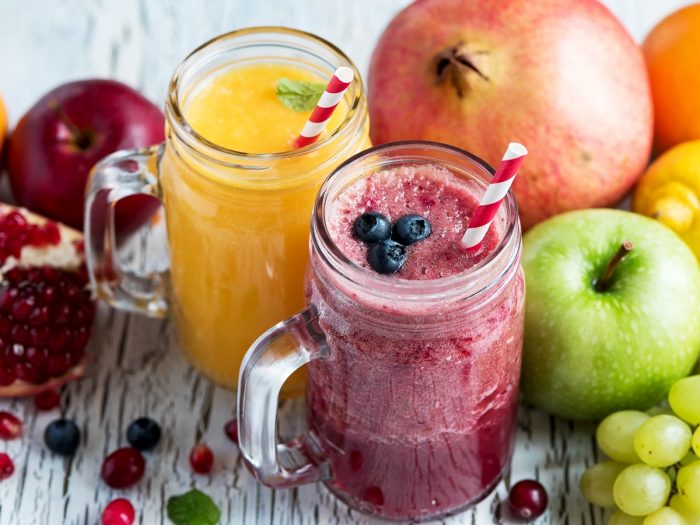When it comes to eating organic while traveling, it depends on your personal preferences and priorities. For some people, it’s important to eat organic food whenever possible to maintain their health and well-being. Ultimately, it’s up to you to decide what’s best for you. If you’re looking to eat organic while traveling, look no further! This guide will teach you everything you need to know to ensure your food is healthy and sustainable when on the road.
What is organic food?
Organic food is food that is grown without the use of synthetic pesticides, herbicides, or fertilizers. It is also food that is not processed using irradiation, industrial solvents, or chemical food additives.
There are many benefits to eating organic food. Organic food is grown using sustainable farming practices that protect the environment and the health of farmers and farm workers. Organic food is also generally more nutritious than conventionally grown food, and it has been shown to contain higher levels of antioxidants and other important nutrients.
With a little effort, you can find and eat organic food while traveling. By doing so, you’ll be supporting sustainable farmers and eating healthier, more nutritious food.
Why is organic food important?
Organic food is important for several reasons. It is grown without synthetic pesticides, herbicides, or fertilizers. It means that it is better for the environment, as well as for your health.
Organic food is also often more nutritious than non-organic food. The soil in which organic food is grown is healthier, and the plants are more robust. Organic food is generally fresher than non-organic food, as it is not grown with preservatives.
Finally, organic food tastes better! It is because it is grown in more natural conditions and can ripen fully before being harvested.
You can do a few things to eat more organic food. First, try to buy organic food from your local farmers’ market. This way, you can be sure that the food is fresh and that the farmers are getting a fair price for their products.
You can also look for organic food at your local grocery store. Many stores now carry organic produce, meat, and dairy products.
Finally, you can grow your organic food. It is the best way to know that your food is organic, and it can also be a fun and rewarding experience.
How to find organic food while traveling?
Organic food can be difficult to find when traveling, but it is possible with a little planning. Here are some tips on how to find organic food while traveling:
- Do some research before you go. Find out if there are any organic grocery stores or farmers’ markets in the area you’re visiting.
- Ask around. Talk to locals and other travelers to see if they know any good places to find organic food.
- Look for signs. Many organic stores and restaurants will have signs or symbols that indicate they sell or serve organic food.
- Be flexible. Don’t be afraid to try new things. You may be surprised at what you find.
With a little effort, you can find organic food while traveling. Just remember to be flexible and ask for the best places to go.
How to eat organic food while traveling on a budget?
Organic food is becoming increasingly popular but can be hard to find and afford while traveling. Here are some tips on how to eat organic food while traveling on a budget.
1. Look for local farmers’ markets.
One of the best ways to find affordable organic food while traveling is to seek out local farmers’ markets. Farmers’ markets typically sell produce in season and locally grown, meaning it is fresher and cheaper than you would find at a grocery store. To find a farmers market near you, try searching online or asking locals for recommendations.
2. Shop at natural food stores.
Natural food stores are another great option for finding affordable organic food while traveling. These stores sell organic and natural foods, including produce, meat, dairy, and grains. To find a natural food store near you, search online or ask locals for recommendations.
3. Stay in accommodations with kitchen facilities.
If you’re looking to save money on organic food while traveling, one of the best things you can do is stay in accommodations with kitchen facilities. This way, you can cook your meals using organic ingredients that you purchase from a local farmers market or natural food store. Not only will this save you money, but it will also allow you to control exactly what goes into your food.
4. Bring your food.
If you’re traveling by plane, train, or bus, one of the best ways to ensure access to affordable organic food is to bring your own. Pack a cooler with your favorite organic snacks and meals, and bring any cooking supplies. This way, you can avoid overpriced and unhealthy airport food and always have something healthy to eat no matter where you are.
5. Plan ahead.
Planning is important if you’re traveling to a country or region where organic food is not widely available. Research where you can find organic food in advance, and stock up before you go. This way, you won’t have to worry about going hungry or eating non-organic food while you’re
Tips for eating organic food while traveling
Organic food is becoming increasingly popular but can be hard to find while traveling. Here are some tips to help you eat organic while on the road.
- Plan ahead. If you know you’ll be traveling, research to see if there are any organic restaurants or markets in the area. If not, find out if there are any farmer’s markets where you can buy fresh, local, and organic produce.
- Bring your food. Pack a cooler with organic snacks and meals if you’re driving. Bring non-perishable organic snacks like nuts, seeds, granola bars, and dried fruit if you’re flying.
- Eat at organic restaurants. When looking for a place to eat, seek organic restaurants. Not only will you be able to find food that meets your dietary requirements, but you’ll also be supporting a local business.
- Shop at local farmers’ markets. Farmers’ markets are great places to find fresh, local, organic produce. If you’re staying in a hotel, ask the front desk if they know of nearby markets.
- Stay in an organic bed and breakfast. More and more bed and breakfasts are going organic, so if this is important to you, make sure to do your research before booking.
By following these tips, you can ensure you’re eating organic food even while traveling.
Benefits of eating organic food while traveling:
Organic food is food that is grown without the use of synthetic pesticides, herbicides, or fertilizers. It is also food that is not processed with artificial ingredients or preservatives. Organic food is grown by specific standards set by national or international organizations. There are many benefits of eating organic food while traveling. Here are some of the most important ones:
- You will be supporting local farmers and the local economy.
- You will be eating food that is fresher and more nutritious.
- You will be reducing your exposure to toxic chemicals.
- You will be helping to protect the environment.
- You will be supporting sustainable agriculture.
When you travel, try to buy organic food from local farmers’ markets or stores. It will ensure you get the freshest and most nutritious food possible. It will also support the local economy and help to protect the environment.
How to avoid unhealthy food while traveling?
When you travel, maintaining a healthy diet cannot be easy. You may be tempted to eat unhealthy food because it’s easy and convenient. However, you can follow some simple tips to avoid unhealthy food while traveling.
1. Plan and pack healthy snacks.
Before you travel, take some time to plan your meals and snacks. It will help you avoid unhealthy foods when you’re on the go. Pack healthy snacks like fruits, vegetables, whole grain crackers, and nuts. These will give you energy and keep you feeling full throughout your trip.
2. Eat breakfast.
It’s important to start your day with a nutritious breakfast. It will give you energy and help you resist eating unhealthy food later in the day. If you’re traveling and don’t have time for a sit-down breakfast, pack a healthy breakfast bar or muffin to eat on the go.
3. Avoid processed foods.
Processed foods are high in sugar, salt, and unhealthy fats. They can be tempting when traveling, but they’re not good for your health. Try to avoid processed foods as much as possible. Instead, opt for fresh fruits, vegetables, and whole-grain foods.
4. Drink plenty of water.
Staying hydrated is important for your overall health. Drinking water will also help you feel full and less likely to overeat. Carry a water bottle when you travel, and drink throughout the day.
5. Exercise.
Exercise is a great way to boost your energy and mood. It can also help counteract the effects of unhealthy food. If you’re traveling, try to exercise for a few minutes each day. Taking a brisk walk or jumping jacks in your hotel room are easy ways to increase your heart rate.
Following these simple tips, you can avoid unhealthy food while traveling. By planning and making healthy choices, you can enjoy your trip and stay healthy at the same time.
What to look for when buying organic food?
Organic food is becoming increasingly popular as people become more interested in eating healthily. But what does organic mean? And how do you know if you’re getting what you’re paying for? Here are a few things to look for when buying organic food:
- Certification: For a food to be certified organic, it must meet certain standards set by the government. Look for the USDA Organic seal or the Certified Organic label from a reputable certifying agency.
- Pesticides: One of the main reasons people choose organic food is to avoid pesticides. While organic foods are grown without synthetic pesticides, they may still be exposed to natural pesticides. To be sure you’re getting the most pesticide-free food possible, look for the USDA Certified Organic label, which means the food has been grown without synthetic pesticides.
- GMOs: Genetically modified organisms (GMOs) are plants or animals genetically engineered to create new, often unnatural, traits. GMOs are not allowed in organic foods. Look for the Non-GMO Project Verified label to be sure you’re getting food free of GMOs.
- Antibiotics: Antibiotics are often used in conventional animal husbandry to prevent disease and promote growth. However, the overuse of antibiotics in animals can lead to antibiotic-resistant bacteria, which can harm human health. When buying organic meat, poultry, and dairy, look for the USDA Certified Organic label, which means ….. raised the animals without routine antibiotics.
- Synthetic additives: Synthetic additives, such as artificial flavors and colors, are not allowed in organic foods. To be sure you’re getting an additive-free product, look for the USDA Certified Organic label.
By following these tips, you can be sure you’re getting the most out of your organic food purchase.
Conclusion
Organic food is becoming more and more popular as people become more health conscious. Traveling can be a great opportunity to try new things, and organic food is no exception. Moreover, eat organic food during traveling is possible, but it takes some effort. If it’s important to you, though, it’s worth it. With some planning and research, you can ensure a healthy and enjoyable trip, no matter where you go.

